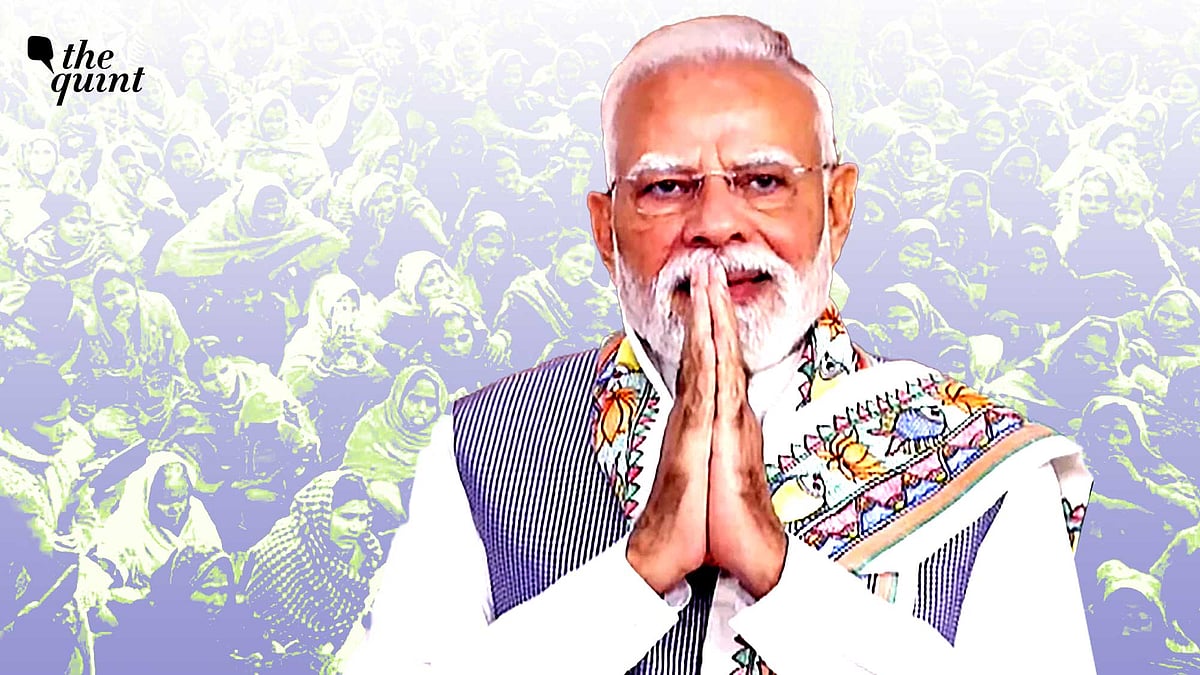
Is PM's Cash Handout for Women in Pre-Poll Bihar an 'Open Bribe'?
Freebies before Bihar elections spark debate: Are they 'bribes' under RoPA or legal welfare schemes?

advertisement
Prime Minister Narendra Modi recently rolled out the Mukhyamantri Mahila Rojgar Yojana, under which 75 lakh domiciled women in Bihar will get a one-time payment of Rs 10,000 for starting self-reliant work. Coming barely over a month before the Bihar Assembly elections, however, the rollout of the scheme has expectedly raked up a controversy, with several Opposition parties, particularly the Congress, alleging it is an "open bribe" to voters.
So, what’s the legal validity of the Opposition’s allegation?
Cash Handouts Before Bihar Polls—Bribe or Welfare?
The Representation of the People Act, 1951 (RoPA) provides for what constitutes as corrupt practices and other offences in the conduct of state and national elections. So the Is the act of handing out a one-time payment a corrupt practice under RoPA?
In the 2013 case of S Subramaniam Balaji and State of Tamil Nadu, the issue was raised before the Supreme Court to examine whether freebies like TV, mangalsutras, etc—as promised in election manifestos and funded by public money, particularly by parties like the Dravida Munnetra Kazhagam (DMK) and All India Anna Dravida Munnetra Kazhagam (AIADMK)—amounted to bribery and exerted undue influence on voters under RoPA?
In response, the Supreme Court held that the distribution of freebies promised in election manifestos does not amount to a corrupt practice under Section 123 of the Act, as the provision applies only to the conduct of individual candidates and their agents, not to political parties.
However, the top court did condemn the culture of doling out freebies to voters—and asked the Election Commission of India (ECI) to frame guidelines to regulate election manifestos.
But freebies have now become a solemn practice across party lines.
The Ladli Behan Yojana in Madhya Pradesh, the Ladki Bahin Yojana in Maharashtra, Mukhyamantri Mahila Samman Yojana in Delhi, and now Mahila Rojgar in Bihar are just a few examples of cash handout schemes targeting women. Then, there are several welfare schemes such as free electricity, water, and bus tickets.
The initial PIL argued that promises of "irrational freebies" during election campaigns amount to bribery and violate constitutional principles. The PIL has been pending in the court for over five years now without much headway. However, during the hearings, the apex court has expressed grave concern over this practice, which is proving to be a death knell for the Indian economy.
The court observed that by doling out such freebies, the states are nurturing a “class of parasites”.
One can only hope that the Supreme Court will decide this matter with utter urgency, as it has taken many states on a non-returnable journey.
The trend of pre-poll freebies that supposedly started in Tamil Nadu has travelled to every state across party lines via Delhi, driven by the Aam Aadmi Party (AAP) govenment then.
Fiscal Burden of Freebies
According to a Reserve Bank of India (RBI) report from 2022, states spend 0.1 percent to 2.7 percent of their Gross State Domestic Product (GSDP) on freebie schemes. Andhra Pradesh and Punjab, for example, are spending 2 percent of their GSDP on freebies. This has pushed states into debt along with other fiscally imprudent factors.
Coming back to the Opposition’s allegation of "open bribe" by the Prime Minister, the facts herein are different than the issue pertaining to the Balaji case on the premise that here, the handouts have been given just before elections. And it’s a promise that is not contingent on the NDA winning elections in Bihar. The handouts have been actually made, and of course, by using state funds. This does influence voters' decision and takes away the level-playing field between the parties in fray. This violates the free and fair election component of the basic structure of the Constitution.
We can only hope for an early decision by the Supreme Court before such freeloading hangs the nation.
(The author practices law at Supreme Court. This is an opinion piece and the views expressed are the author's own. The Quint neither endorses them nor is responsible for them.)
- Access to all paywalled content on site
- Ad-free experience across The Quint
- Early previews of our Special Projects
Published: undefined